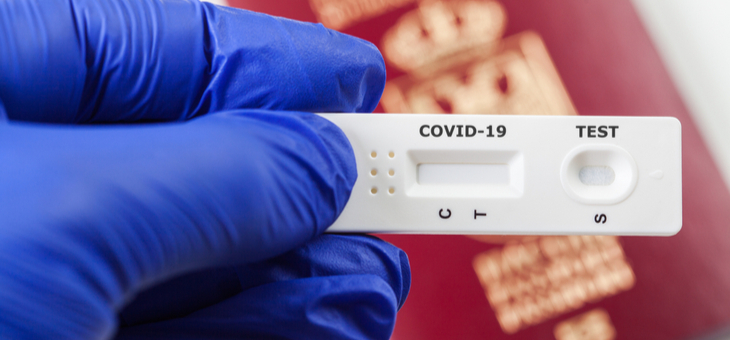The new CEO of British Airways says the global aviation industry is at risk if governments do not agree on measures to ensure safe travel.
Sean Doyle is demanding that pre-flight testing, not quarantines, are made the priority – putting him at odds with his own transport minister and many other experts.
“Our position at British Airways is that we do not believe quarantine is the solution,” Mr Doyle told the online Airlines 2050 conference.
He said cheap, reliable pre-departure testing would reassure governments and passengers.
“We need to get the economy moving again, and this just isn’t possible when you are asking people to quarantine for 14 days,” he said.
“It is our view that even if that quarantine period is reduced to, say, seven days, people won’t travel here, and the UK will get left behind.
“I need to be clear that there is a risk as an industry that we will not see beyond this crisis if we do not first address the issue of how we get people flying again,” he warned.
“Everything else is for another day.”
The UK Transport Secretary Grant Shapps told the same event he is “very hopeful” a new testing regime for travellers to the UK can be in place by 1 December. Passengers would be tested at their own expense after one week of isolation.
Currently, most travellers to the UK must self-isolate for 14 days, which the aviation industry says is deterring people from getting on airplanes. British carrier Ryanair will operate at 40 per cent of its normal capacity in upcoming months; Easyjet at 25 per cent capacity. Overall, international travel is 92 per cent down on 2019 levels. The lost revenues of airlines are expected to exceed $400 billion and 65.5 million jobs are estimated to be affected globally by the pandemic shutdowns.
In September, The International Air Transport Association (IATA) called for the development and deployment of “rapid, accurate, affordable, easy-to-operate, scalable and systematic COVID-19 testing for all passengers before departure” as an alternative to quarantine measures to save the industry.
It said there was limited flying because “quarantine measures make travel impractical or the frequent changes in COVID-19 measures make planning impossible”.
“The key to restoring the freedom of mobility across borders is systematic COVID-19 testing of all travellers before departure. Testing all passengers will give people back their freedom to travel with confidence. And that will put millions of people back to work,” said Alexandre de Juniac, IATA’s Director General and CEO.
In the United States several airlines have partnered with health companies to provide tests for passengers. However, they are expensive. And there’s more cold water: “A pre-flight test, even when given at the security checkpoint, is not a foolproof protocol to prevent the spread of COVID-19,” says Makeda Robinson, a virologist at Stanford University.
CNBC reports that when Iceland reopened its borders on 15 June, it exempted travellers from a two-week quarantine if they tested negative for COVID-19 upon arrival. Cases started rising and, in August, Iceland revised its policy. It now requires a COVID-19 test upon arrival, then quarantining and another test five days later.
Dr Robinson said every person infected with COVID-19 has an incubation period when the virus can’t yet be detected by tests. The average is four to seven days, but it can be 14 days, meaning people are often highly infectious prior to showing any symptoms.
“This means that someone could be infected … have an initial test which was negative prior to boarding the plane, and then test positive in the days following their flight,” Dr Robinson said.
Dr Robinson suggests a pre-flight test, a quarantine period of around seven days in the destination country and a post-flight test.
“A test represents only a moment in time,” said Dr Shira Doron, infectious disease physician and hospital epidemiologist at Tufts Medical Center.
“Someone can be negative one moment and develop the disease the next. Although (testing) decreases the likelihood that someone with COVID-19 will board a plane, it does not eliminate the risk.”
Rapid testing is not yet accurate or reliable enough. The COVID-19 outbreak at the White House this month was due in part to its reliance on rapid tests to screen visitors. CNBC says these tests can miss up to a third of asymptomatic infections. And rapid antigen tests can result in 20 per cent to 40 per cent false negatives, meaning they are better suited to confirm infections, rather than offer an “all clear” indication of no infection.
When will you fly again?
If you enjoy our content, don’t keep it to yourself. Share our free eNews with your friends and encourage them to sign up.
Related articles:
https://www.yourlifechoices.com.au/health/covid19/saliva-testing-offers-border-hope
https://www.yourlifechoices.com.au/travel/news/nz-bubble-six-months-away
https://www.yourlifechoices.com.au/travel/news/australia-becoming-a-hermit-nation

